I think Dan Bates would begrudgingly agree with me when I claim, as I sometimes do, that Henri Langlois was the father of us all. He introduced the young Nouvelle Vague cinema giants -- Truffaut, Godard, &c. -- to the more auteur cultic American films, such as Minnelli's Some Came Running. Thus, as homage, in Contempt, that homage to everything "Hollywood," Godard has struggling film writer Michel Piccoli doing a Dean Martin imitiation, complete with a hat he never takes off, even when bathing. No, make no mistake about it, Langlois was the spiritual father of all of us who began studies of film in the Sixties.
I was lucky enough to have made Dan's acquaintance at about the same time that I joined a student activities committee at TCU, one devoted solely to the task of booking movies for screenings in a big auditorium above the cafeteria in the student union. At meetings and screenings both, we were graced with the presence also of John W. Gaston, a theatre historian and authority on many things, including the life and works of E. Gordon Craig, the famous British scene designer, actor, and producer. John had a thirst for booking into our series offerings legendary masterpieces of film art, new foreign films he'd read of, and experimental films by the likes of Man Ray, Hans Richter, and Luis Buñuel (and perhaps it is to John that I am indebted for earliest exposure to one of my most revered filmmakers: I would sell all and take as my only picture to a desert island The Discreet Charm of the Bourgeoisie).
Early on, the Films Committee also had input from Larry McMurtry, who was teaching English at TCU my first year. He was a shy, unassuming person, quite pleasant in all important ways, and had absolutely no objection when we asked the higher ups to let us cut free of our "faculty advisor," a bad move since it meant we would not see much of the author again. Dan was there with us when we screened Leni Riefenstahl's Triumph of the Will and became only the second organization to show the Nazi propaganda film for 20 years, it having been confiscated by the war department and, early in the '60s, finally released in the U.S. (To this day, I regard it as the finest feature documentary ever made, and while I am hardly blind to its glorification of Adolf Hitler -- seen first arriving, Wotan-like, in the skies above Nuremberg, flying in in a Luftwaffe plane.). I knew that the TCU screening might be controversial, but I could only laugh when one professor from the English department stormed out, barking at me: "That's perverted art!" Considering the subject he taught, he should know better than to ineptly employ such an oxymoron.
Dan was around, again, when we were warned by the Fort Worth city attorney against screening a movie already subject to an injunction against a local "art house." It seems he'd read an item by the Fort Worth Star Telegram's gossip columnist (and faux critic), Elston Brooks, to the effect that we were planning on showing Ingmar Bergman's Virgin Spring. "If you show that movie," the dean of students warned me, "you can pack your bags cause you're going home." I attempted in vain to persuade Janus, the distributor, to defend our academic freedom, but they declined, and when I mentioned academic freedom to the dean, he said, "The only academic freedom here is that of the professors." (I only later learned that when he died, Elston Brooks, the gossip columnist and faux critic, was found to have had the largest pornography collection in North Texas. He should have kept his mouth shut.)
We eventually screened the film, prefaced with a speech by me to the effect that one scene would have to be blocked out. That was the scene that produced the injunction, having not passed muster with the Fort Worth Censor Board. (This organization was populated solely by widows of police officers killed in the line of duty. Not exactly a jury of Ingmar Bergman's peers.) We went ahead and screened the movie, but when the objectionable sequence came on -- the rape of a maiden by ignorant, pagan peasants, leading to the denouement depicting an after-thaw spring from the very ground where the girl died -- we cupped the projector lens. This proved even more tantalizing to the audience, as they heard the girl's screams and moans. One can only imagine what horrifying images entered that audience's minds; surely, they were far more potent than anything Bergman could have contrived.
Dan aided us in an advisory capacity in programming our "Popular Film Series" (by agreement of committee members, we had to have just as many Hollywood blockbusters as foreign films on our "Fine Film Series"). In his deep love of American film, and particularly John Ford, Dan and the committee members insisting on revivals of U.S. product really were acting in the spirit of Langlois. We had one committee member, a myopic nerdy type, who insisted we screen his personal favorite, Cockelshell Heroes, and as he threatened to resign if we didn't, we booked it. (Stephen H. Scheueur, one of the only "Movies on TV" critics I respected, gave it three of four stars, pointing out that first (and only?) time director, Jose Ferrer, had assembled a fine cast including Trevor Howard in telling the tale of a critical commando mission during WW2.)
I'm going to miss Dan. Even his Ten Best lists.
Friday, July 11, 2008
Subscribe to:
Post Comments (Atom)
+(2).jpg)
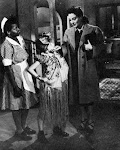.jpg)
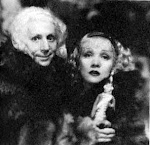+(3).jpg)
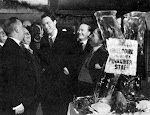+(4).jpg)
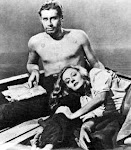+(7).jpg)
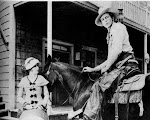.jpg)
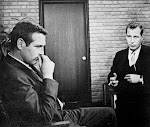+(6).jpg)
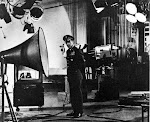+(5).jpg)
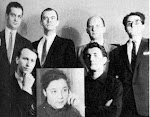.jpg)


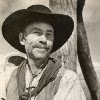



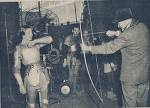
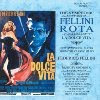

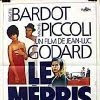

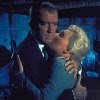
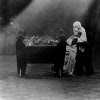
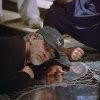





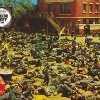




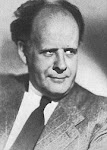

















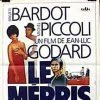


No comments:
Post a Comment